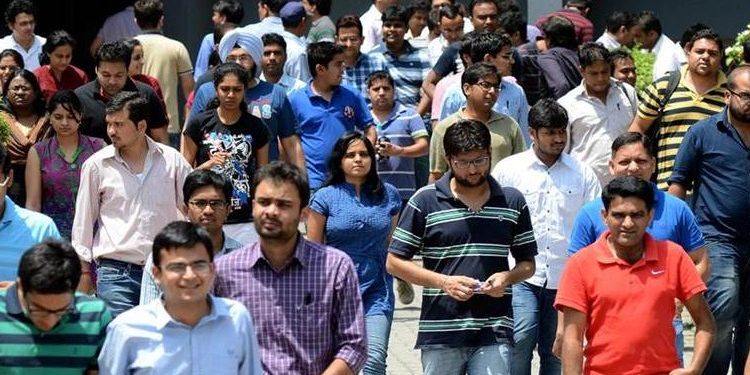New Delhi: Amid a growth slowdown and unemployment issues, India’s politics will be increasingly shaped by the economic insecurity of its vast youth population, the Economist Intelligence Unit said in a research note Friday.
The issue of unemployment and underemployment has been an unavoidable topic in India’s politics and slower economic growth has translated to poor employment numbers.
“Although Prime Minister Narendra Modi successfully won re-election for the Bharatiya Janata Party earlier this year on a platform of strong leadership and emphasis on social and security issues, politics will increasingly be shaped by the economic insecurity of India’s vast youth population,” the research note by the Economist Intelligence Unit (EIU) said.
Citing Centre for Monitoring Indian Economy data, the EIU said that in October 2019, the unemployment rate rose to a three-year high of 8.5 per cent, up from 7.2 per cent in September.
Notwithstanding that the country is expected to benefit from a favourable “demographic dividend” over the next few decades, the rate of job creation is lagging behind the rate at which the labour force is growing, it said.
The World Bank estimated in 2018, that India needs to create around 8.1 million jobs a year to maintain its employment rate.
“However, official employment data are spotty, given the difficulties of measuring employment in the vast informal sector and the political sensitivity attached to the figure,” the note said.
According to the EIU, the government’s near-term stimulus efforts have been “inadequate”, given the scope of the job-creation problem and “structural reform rather than a short-term stimulus is required to address the country’s job-creation problem”.
Historically, voting in India has been driven by traditional caste factors rather than the performance of the government.
“Having now delivered most of the issues on the Hindu-nationalist agenda that was popular with his supporters, Modi is likely to face a challenge in retaining his popularity as voters grow increasingly disappointed with the lack of progress on the economic front,” the EIU noted.
It cited the revoking of the special constitutional status of Jammu and Kashmir and the recent Supreme Court ruling that calls for the construction of a Hindu temple on a disputed piece of land in Ayodhya (Uttar Pradesh).
According to the EIU, the BJP is expected to gain a simple majority in the Rajya Sabha by 2021 and this will potentially allow the government to pass more contentious bills aimed at overhauling the labour market.
“However, its ability to push against strong unions, which oppose the relaxation of labour laws to benefit businesses, will be limited. Unions had already stated strong opposition to the proposed labour law changes, particularly the industrial relations code,” it noted.
The strong political influence wielded by the unions means that Indian labour markets are likely to remain highly regulated in comparison with other countries.
“Over the long term, inadequate progress on addressing India’s labour market issues will keep the political field ripe for enterprising politicians running on a job-creation platform,” it noted.






































